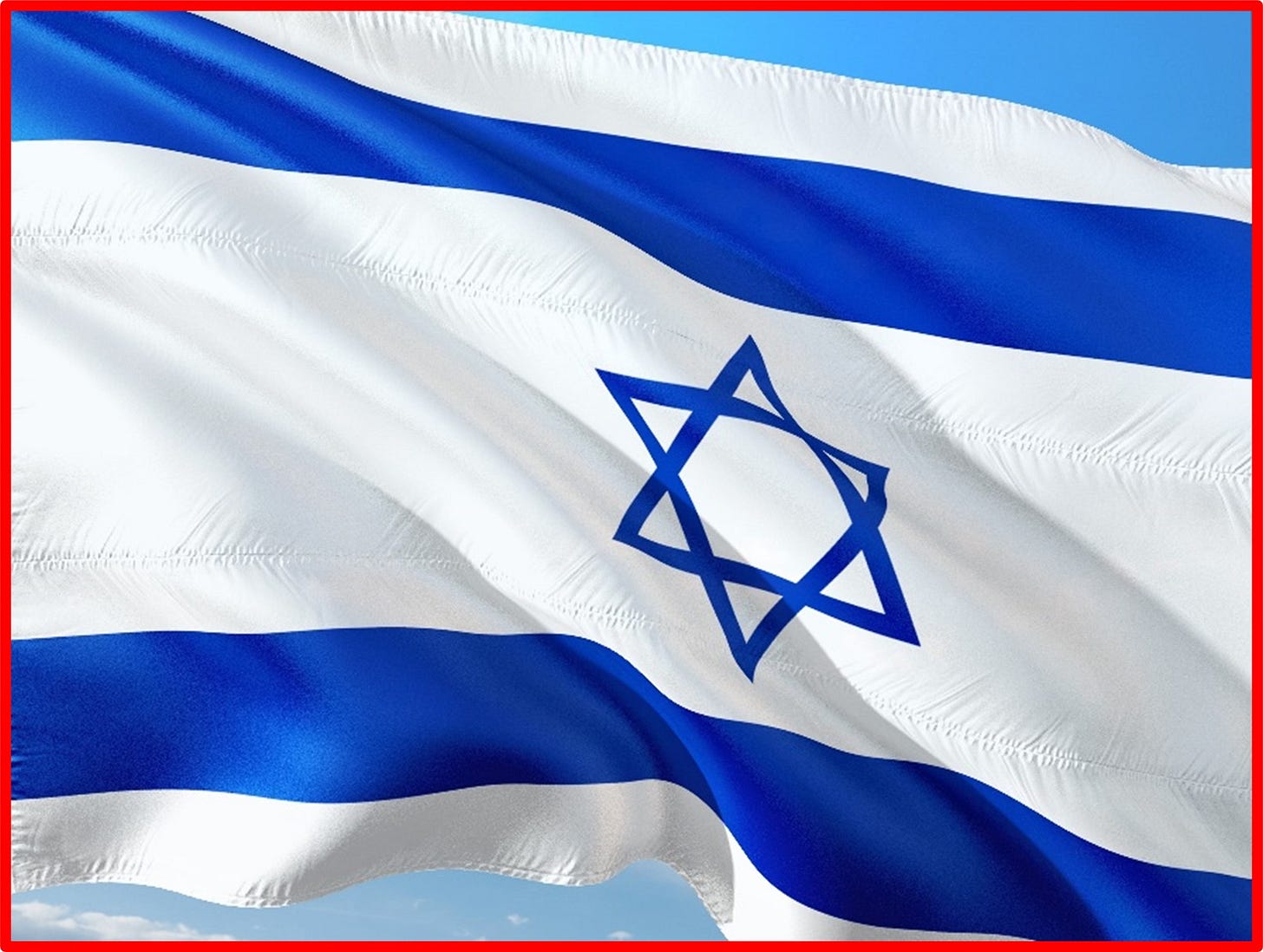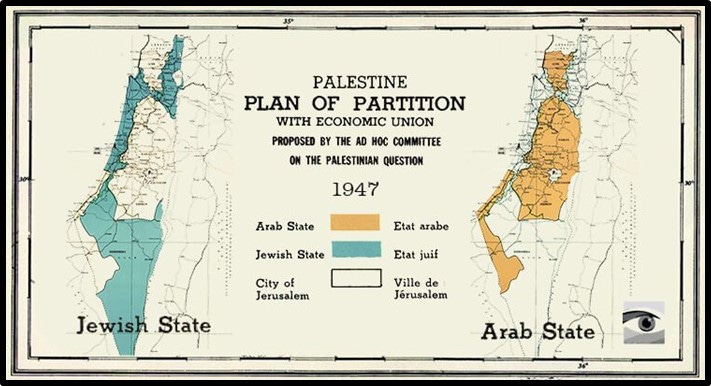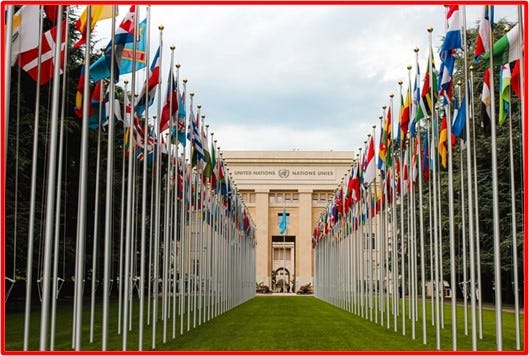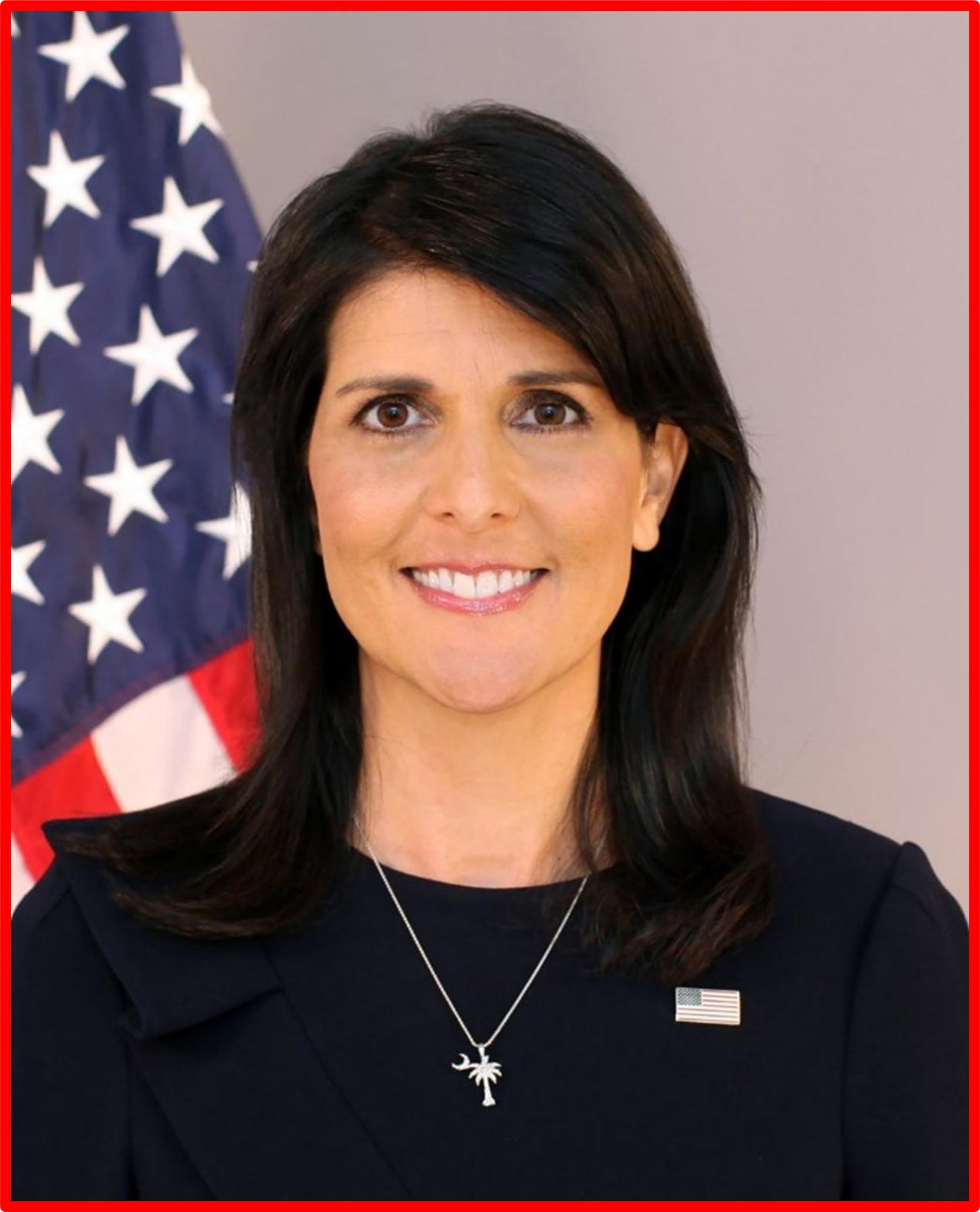International Law, the United Nations, and the Establishment of Israel:
Part 3 of Zionism, Humanitarianism, and the Progressive Dilemma.
Flag of Israel image courtesy of Pixabay.
NOTE: Nazia Saeed, a Human Resources professional living in Abu Dhabi, United Arab Emirates, contributed significant research and writing for parts of this article.
**********
Last night’s Public Health Policy Reviews Substack post features a written description of how German composer and political polemicist Wilhelm Richard Wagner’s (1813–1883) epic opera, The Ring Cycle, influenced Adolf Hitler and the Nazi Party to commit mass genocide against European Jews during the Holocaust.
Avarice, lust, and envy are seminal aspects of Wagner’s “Ring Cycle” narrative. Murder and betrayal happen in the name of love and gold. The ensuing epic conflicts and psychological struggles in Wagner’s “Ring Cycle” ruined the lives of great warriors and destroyed the human lovers who revered the gods.
The United Nations (UN) is supposed to promote diplomatic interactions and foster coordination between all nations to prevent the kind of greed, envy, lust, and hate in the “real world” that lead to the violent and tragic downfalls of the anti-heroes of Wagner’s “Ring Cycle.” Unfortunately, more often than not, the UN is ineffective in alleviating the social and economic ramifications of poverty, racism, misogyny, xenophobia, and religious bigotry that create the political and military conditions for violent wars.
**********
The 1947 UN Partition Plan.
We cannot overstate the role of the UN and international law in establishing Israel while indirectly contributing to the disenfranchisement of Palestinians.
In 1947, the United Nations General Assembly passed Resolution 181, which recommended the partition of Palestine into separate Jewish and Arab states, with Jerusalem placed under international administration. The partition plan was supposed to address Jewish and Arab claims to the land. But it received mixed reactions. Although Jewish leaders reluctantly accepted the plan, Arab leaders vehemently rejected Resolution 181.
The UN’s decision was legally binding but deeply contentious, especially in light of Britain’s withdrawal from its mandate over Palestine. Resolution 181’s division of land laid the groundwork for the subsequent Arab-Israeli conflict, as Palestinian Arabs felt betrayed by a process they perceived as unjust. However, the rejection of Resolution 181 by the Palestinians was a significant legal and politically tactical mistake.
Over the past seventy-seven (77) years, the UN and international legal scholars have used the Palestinians’ rejection of Resolution 181 to bolster Israel’s claims against a Palestinian state.
**********
The photo is courtesy of Mathias P.R. Reding and Unsplash.
The displacement of Palestinians is currently not a point of contention in international law or at the UN because they rejected Resolution 181.
Consequently, the diplomatic, humanitarian, and public health policies of Vice President Kamala Harris and former President Donald Trump will make a major impact on Israel’s security and the prospects for a Palestinian state someday. Luckily, we have great reference points for what VP Harris or Mr. Trump will do if elected.
Former President Barack Obama – who is the prototype for “Harris Democrats” in 2024, created a contentious relationship with Israel during his eight-year administration. Israeli Prime Minister Benjamin Netanyahu vehemently opposed the Iran Nuclear Deal, the signature diplomatic policy accomplishment of Mr. Obama’s term in office.
During his final months in office, President Obama and Secretary of State John Kerry teamed up with Egypt, Malaysia, and Venezuela to pass United Nations Security Council Resolution 2334 in December 2016. Resolution 2334 deemed the Jewish settlements on the West Bank of Israel a “flagrant violation of international law.”
**********
UN Ambassador Nikki Haley.
Nimrata “Nikki” Haley, the 29th US Ambassador to the UN. The photo is courtesy of Wikipedia Commons.
Supreme Court Chief Justice John Roberts swore in Donald Trump as the 45th United States President at his inauguration ceremony on January 20th, 2017.
In stark contrast to Mr. Obama, Trump immediately signaled his unconditional support of Israel. Two days after Mr. Trump’s inauguration, Prime Minister Netanyahu announced his intention to lift Israel’s West Bank settlement expansion and construction restrictions. Trump officially supported Netanyahu’s policy shift.
One of Mr. Trump’s first acts as President-elect was to appoint David M. Friedman as the new Ambassador to Israel. Mr. Friedman immediately stated that Israeli settlements in the West Bank were not illegal and supported Israel’s efforts to annex large areas of the West Bank. Another avatar of Donald Trump’s international diplomatic policies was his former Ambassador to the UN, Nikki Haley.
When Mr. Trump selected former South Carolina Governor Nikki Haley as his UN Ambassador, establishment politicos and media members took the move as a signal that his administration’s international policies would be “moderate.”
**********
Former UN Ambassador (2017–2019) and first female governor of South Carolina (2011–2017), Nikki Haley. Image courtesy of Facebook.
During her 13-year political career before becoming UN Ambassador, Haley crafted a reputation as a “moderate” Republican.
Haley earned her status by supporting a few liberal social issues while holding traditional evangelical Christian views on conservative cultural and economic topics. Yet, when Ambassador Haley took office, she quickly pivoted toward President Trump’s foreign policy doctrine of “non-intervention,” economic protectionism, and unwavering support for Israel.
Ambassador Haley and the Trump administration challenged US participation and economic investments in the UN and the North Atlantic Treaty Organization (NATO). In September 2017, the Trump administration announced that the US would open its first permanent military base in Israel.
Seventy years after the United States of America became the first country to extend diplomatic recognition to Israel, Donald Trump made history on December 6th, 2017, when he officially recognized Jerusalem as the capital of the Jewish state. Trump withdrew from the Iran Nuclear Deal on May 8th, 2018.
**********
The US consular building was temporarily located in Jerusalem after the Donald Trump administration announced a search for a permanent location for the first US Embassy in Jerusalem. Photo courtesy of France 24.
On May 14th, 2018, the 70th anniversary of the Independence of Israel — America opened the first US Embassy in Jerusalem.
Then, in March 2019, President Trump reversed decades of US policy by signing a United States recognition of the Golan Heights as part of Israel. The press conference, held in Washington DC with Mr. Netanyahu, made America the first country other than Israel to recognize Israeli sovereignty over the Golan Heights.
Tweeting on March 21st, 2019, Trump wrote: “After 52 years, it is time for the United States to fully recognize Israel’s Sovereignty over the Golan Heights, which is of critical strategic and security importance to the State of Israel and Regional Stability!” -Donald J. Trump (@realDonaldTrump).
President Trump ordered the killing of ISIS leader Abu Bakr al-Baghdadi in October 2019. In January 2020, Trump ordered the assassination of Iranian General Qasem Soleimani. General Soleimani was the commander of Iran’s notorious Quds Force and the architect of Iran’s proxy wars in Lebanon (Hezbollah), Yemen (the Houthi rebels), and Gaza – with Hamas.
**********
Bahrain’s Minister of Foreign Affairs, Dr. Abdullatif bin Rashid Al-Zayani (far left), Israeli Prime Minister Benjamin Netanyahu (middle left), US President Donald J. Trump (middle right), and the Minister of Foreign Affairs for the United Arab Emirates, Abdullah bin Zayed Al Nahyan (far right), signed the Abraham Accords on Tuesday, September 15th, 2020, on the South Lawn of the White House. The official White House photo is courtesy of Shealah Craighead.
Donald Trump’s aggressive foreign policy moves, as outlined in the previous five paragraphs, signaled proof of his administration’s favor for Israel over Palestinian efforts to secure a two-state solution.
However, it was the Abraham Accords that put the final nail in the coffin of Palestinian hopes that international law and UN diplomacy could serve as viable options for consideration of their legal claims against Israel. In August 2020, the United States, Israel, and the United Arab Emirates (UAE) issued a joint statement announcing formal diplomatic relations between Israel and the UAE.
The Abraham Accords became the official title for the bilateral agreements of state recognition and diplomatic engagement between Israel, Bahrain, and the UAE. With the signing of the Abraham Accords in September 2020, the UAE became the third Arab nation to normalize relationships with Israel after Egypt (1979) and Jordan (1994).
The New York Times editorial page identified David M. Friedman, Trump’s Ambassador to Israel, as someone “who drove the radical overhaul of White House policy toward the [current] Israeli-Palestinian conflict.”
**********
Israeli justifications for statehood in international law.
The photo of a pro-Palestinian demonstration is courtesy of shavnya.com on Unsplash.
Disgraced, Jeffrey Epstein-affiliated attorney Alan Dershowitz nominated Ambassador Friedman for the 2020 Nobel Peace Prize after his work alongside Trump’s son-in-law Jared Kushner in negotiating the Abraham Accords.
But – international Palestinian advocates and political leftists point to Donald Trump’s four-year White House term and the Abraham Accords as the reasons why Hamas felt compelled to attack Israel on October 7th, 2023. Thus, we end today’s essay installment on Zionism with a question.
Where would the Middle East be today if the Palestinians and their leaders accepted Resolution 181 and the UN international administration of Jerusalem way back in 1947?
International law’s interpretation of self-determination, as outlined in the UN Charter, provided a legal framework for Zionists to pursue statehood. The Palestinians, who also claimed self-determination, claim the UN’s legal framework ignores their rights and claims.
An ambiguous legal stipulation of the Palestinian right of return would leave their claims for statehood unresolved. However, Israel and the international Zionist movement justify their rights and claims on their 1947 acceptance of UN Resolution 181.
**********











